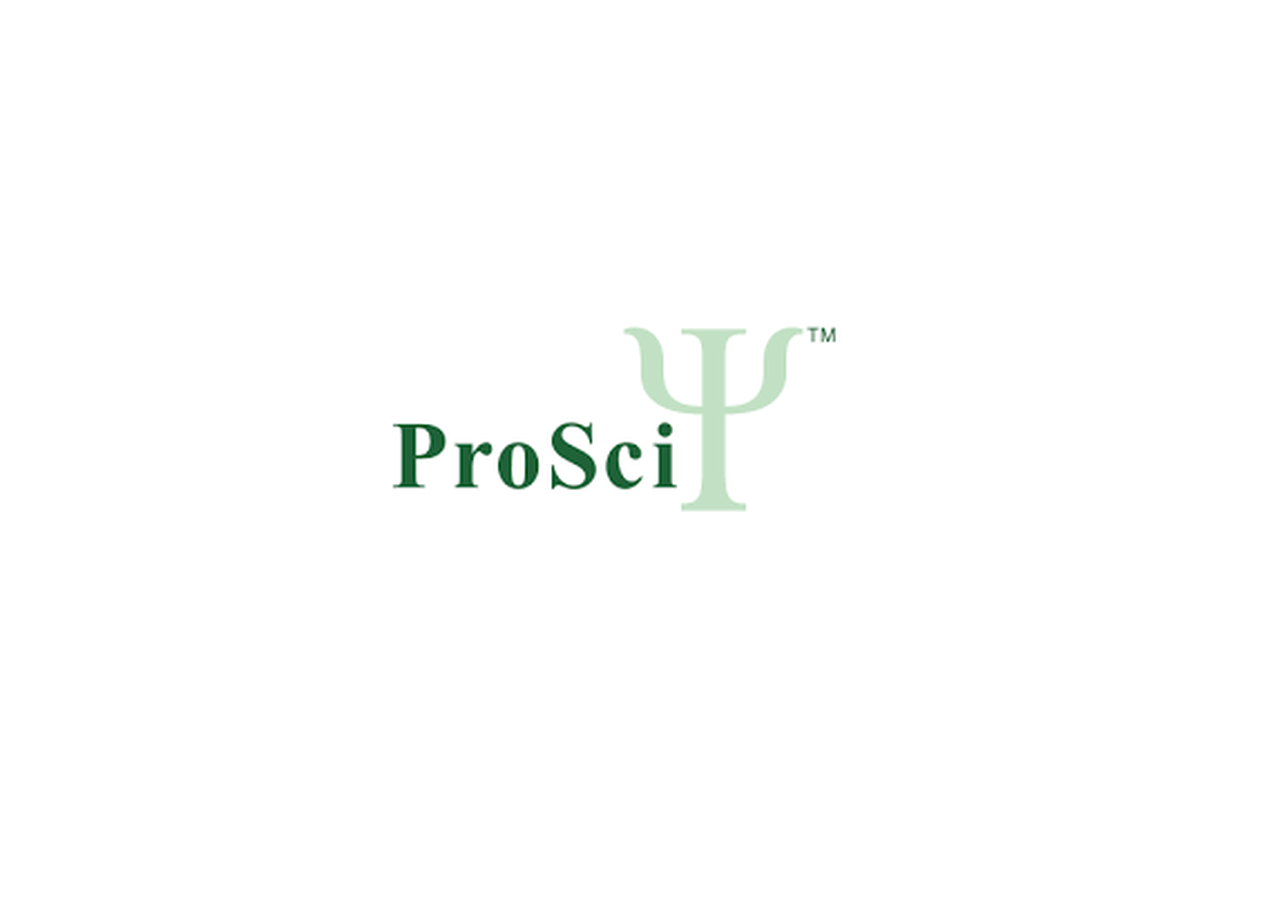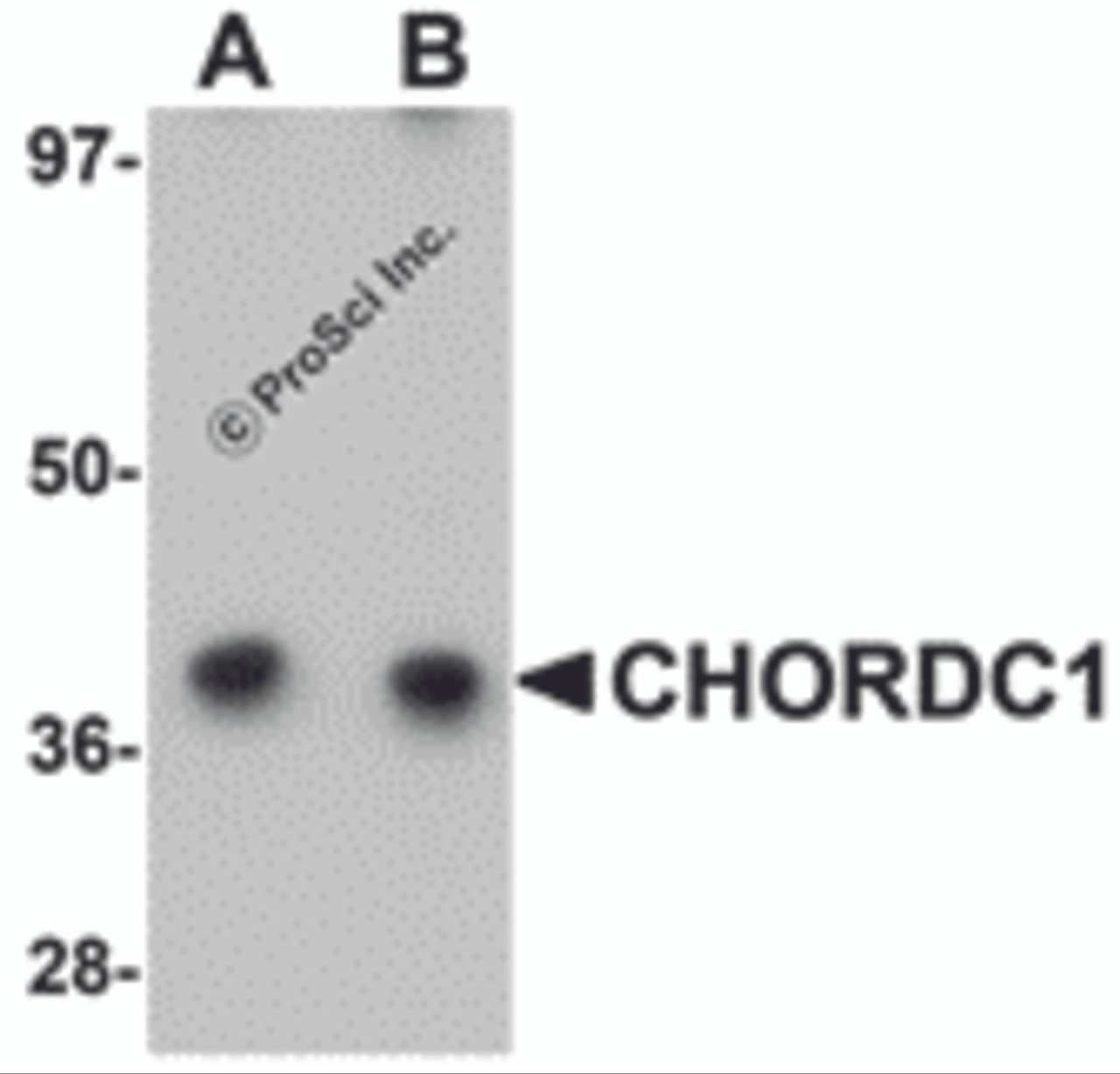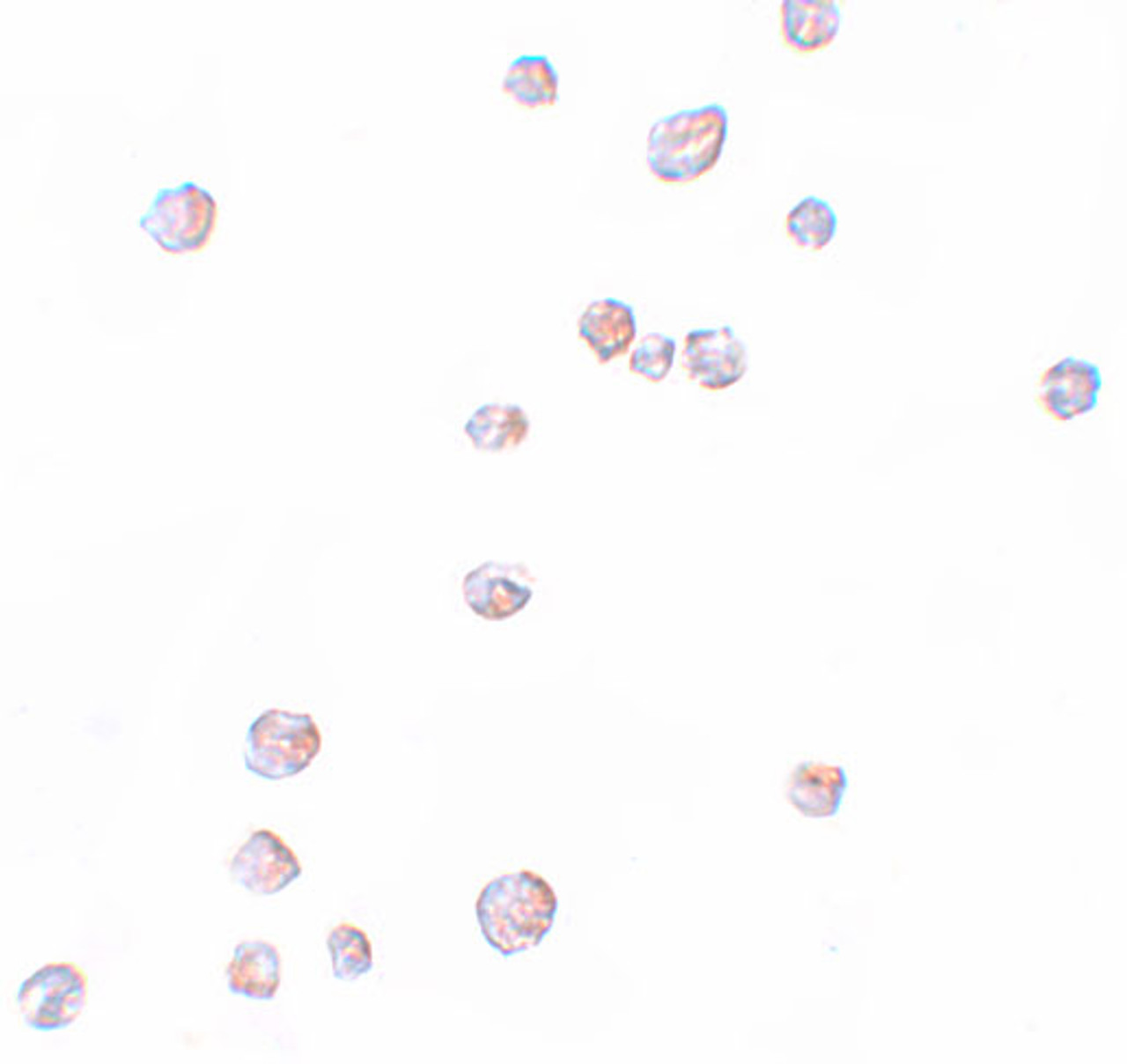Product Description
CHORDC1 Antibody | 5587 | ProSci
Host: Rabbit
Reactivity: Human, Mouse, Rat
Homology: Predicted species reactivity based on immunogen sequence: Pig: (100%) , Bovine: (100%) , Chicken: (86%)
Immunogen: CHORDC1 antibody was raised against a 21 amino acid synthetic peptide near the amino terminus of human CHORDC1.
The immunogen is located within amino acids 50 - 100 of CHORDC1.
Research Area: Homeostasis
Tested Application: E, WB, ICC, IF
Application: CHORDC1 antibody can be used for detection of CHORDC1 by Western blot at 1 - 2 μg/mL. Antibody can also be used for immunocytochemistry starting at 2.5 μg/mL. For immunofluorescence start at 20 μg/mL.
Antibody validated: Western Blot in human samples; Immunocytochemistry in human samples and Immunofluorescence in human samples. All other applications and species not yet tested.
Specificiy: N/A
Positive Control 1: Cat. No. 1210 - HEK293 Cell Lysate
Positive Control 2: Cat. No. 17-010 - HEK293 Cell Slide
Positive Control 3: N/A
Positive Control 4: N/A
Positive Control 5: N/A
Positive Control 6: N/A
Molecular Weight: N/A
Validation: N/A
Isoform: N/A
Purification: CHORDC1 Antibody is affinity chromatography purified via peptide column.
Clonality: Polyclonal
Clone: N/A
Isotype: IgG
Conjugate: Unconjugated
Physical State: Liquid
Buffer: CHORDC1 Antibody is supplied in PBS containing 0.02% sodium azide.
Concentration: 1 mg/mL
Storage Condition: CHORDC1 antibody can be stored at 4˚C for three months and -20˚C, stable for up to one year. As with all antibodies care should be taken to avoid repeated freeze thaw cycles. Antibodies should not be exposed to prolonged high temperatures.
Alternate Name: CHORDC1 Antibody: CHP1, CHP1, Cysteine and histidine-rich domain-containing protein 1, CHORD domain-containing protein 1, CHORD-containing protein 1
User Note: Optimal dilutions for each application to be determined by the researcher.
BACKGROUND: CHORDC1 Antibody: The cysteine and histidine-rich domain (CHORD) -containing protein (CHORDC1) is a member of a highly conserved protein family that contains the plant protein RAR1 and the mammalian protein melusin. In mammals, CHORDC1 is an ADP-dependent HSP90-interacting protein, and this interaction is dependent on the ability of HSP90 to bind nucleotides. Recent experiments indicate that CHORDC1 mRNA is diurnally regulated in mouse hypothalamus, and that this regulation alters during development, suggesting that CHORDC1 may play a role in circadian mechanisms in the mammalian brain.
 Euro
Euro
 USD
USD
 British Pound
British Pound
 NULL
NULL












